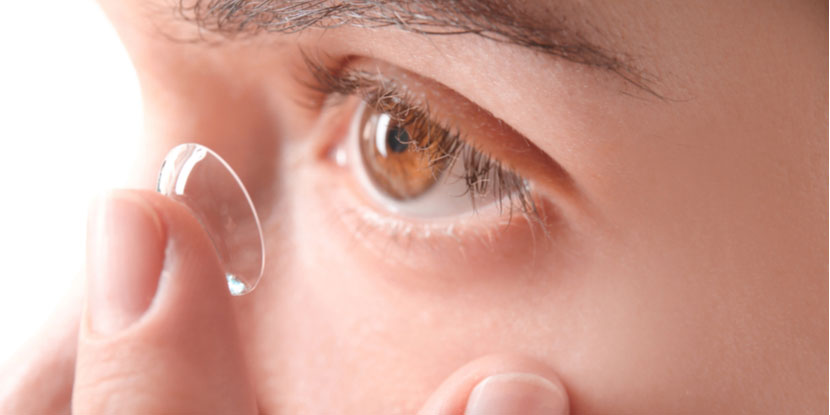Night vision, also known as scotopic vision, refers to the ability to see in dimly-lit environments. Night vision is monochromatic and unclear, equating to roughly 20/200 vision. Aging, sunlight exposure, nutritional deficiencies and certain medical issues can all lead to decreased night vision. There are several causes of decreased night vision; some are treatable and some are not.

How Does Night Vision Work?
The eye's lens focuses light -- even low light at night -- on the retina. The retina contains receptor cells called rods and cones, which process light into vision. Cones are responsible for "high definition" central vision in bright, vibrant colors. Rods are responsible for peripheral vision, motion-sensing and low-light vision. Rod cells are able to process vision at night because they are highly sensitive to light -- over 1,000 times more sensitive than cones. The tradeoff: Rods cannot effectively process color or detail. That is why night vision tends to be less sharp and has a gray, colorless appearance.
Rhodopsin's Night Vision Importance
When exposed to light, photopigments in the retina undergo a chemical reaction that converts light to electrical impulses, which are transmitted to the brain via the optic nerve. Rod cells use one photopigment called rhodopsin to transmit signals that enable night vision. During exposure to bright light, rhodopsin decomposes or "bleaches," which deactivates rod cells. In low light or darkness rhodopsin regenerates, re-activating rod cells. Rhodopsin regeneration (also called rhodopsin turnover) occurs relatively slowly, which is why it takes several minutes for vision to adjust in the dark. This gradual low-light vision onset, known as dark adaptation, is familiar to anyone who has moved from bright daylight to a darkened room. Maximum low-light vision occurs in 30 to 45 minutes, which is how long it takes for complete rhodopsin turnover. Some nutritional compounds have been found to accelerate this rhodopsin turnover.
What Causes Decreased Night Vision?
Aging: The pupil becomes less effective at dilating with advancing age, meaning less light enters the eye and night vision progressively worsens. Age-related eye health issues like cataracts and macular degeneration also lead to poor night vision.
Exposure to sunlight: Sunlight exposure to the eyes can impair night vision and slow down dark adaptation. Three hours of sunlight exposure is believed to delay dark adaptation by up to ten minutes. Ten days of consistent bright sunlight exposure is believed to cause a 50 percent reduction in night vision. Individuals who regularly experience longer-term sun exposure may take weeks to recover their night vision, and may eventually permanently lose full function of their rod cells.
Retinitis pigmentosa: Retinitis pigmentosa is a genetic eye disease that usually manifests prior to the age of 30. The disease's damage to the retina affects rod cells first, often leading to decreased night vision and peripheral vision loss. Retinitis pigmentosa is a progressive disease, although it rarely causes complete blindness. Antioxidant nutrients and Omega-3 fatty acids have both been investigated for their ability to help with retinitis pigmentosa.
Diabetes: People who have diabetes can suffer from a condition called diabetic retinopathy in which high blood sugar damages the retina, leading to poor night vision and impaired dark adaptation.
Cataracts: With advancing age, proteins in the normally-clear lens can break down -- leading to a gradual lens-clouding condition known as cataracts. Poor night vision is often an early warning sign of cataract development.
LASIK surgery complication: A rare LASIK surgery side effect is decreased night vision. Individuals who experience this complication may see a glare, "starburst" or halo around lights and objects at night. An eye doctor's pre-LASIK surgery evaluation may help to determine the likelihood of decreased night vision complications.
Nutritional deficiency: Deficiency of vitamin A, while rare, has been associated with decreased night vision and night blindness. Health issues like celiac disease and Crohn's disease can diminish the body's ability to absorb vitamin A from foods, and may also contribute to night vision problems. Since body also requires zinc to fully utilize vitamin A, zinc deficiency may play a role in decreased night vision.
Managing Decreased Night Vision
Individuals with decreased night vision should visit their eye doctor to rule out the possibility of serious eye health issues. An eye doctor will examine the eyes to identify the causes of night vision problems. There are several strategies to assist with decreased poor night vision, depending on the cause:
Protection from the sun: Wearing a wide-brimmed hat and high-quality, grey-tinted sunglasses that only allow 15% of light to pass through the lenses will help to maintain night vision and dark adaptation.
Cataract surgery: Surgery that replaces a clouded lens with a clear artificial lens can effectively restore night vision.
Diabetes treatment: Promoting balanced, healthy blood sugar levels helps to protect the retina from diabetic damage that is associated with decreased night vision.
Nutrition: Mindful prevention of vitamin A and zinc deficiency through healthy diet and nutritional supplementation can help to maintain night vision. Carotenoid antioxidant nutrients that protect the eye's rod cells from the sun's damaging UV rays may also optimize healthy night vision. Further, science has identified multiple natural compounds that appear to promote visual acuity in low-light environments while accelerating rhodopsin turnover.














